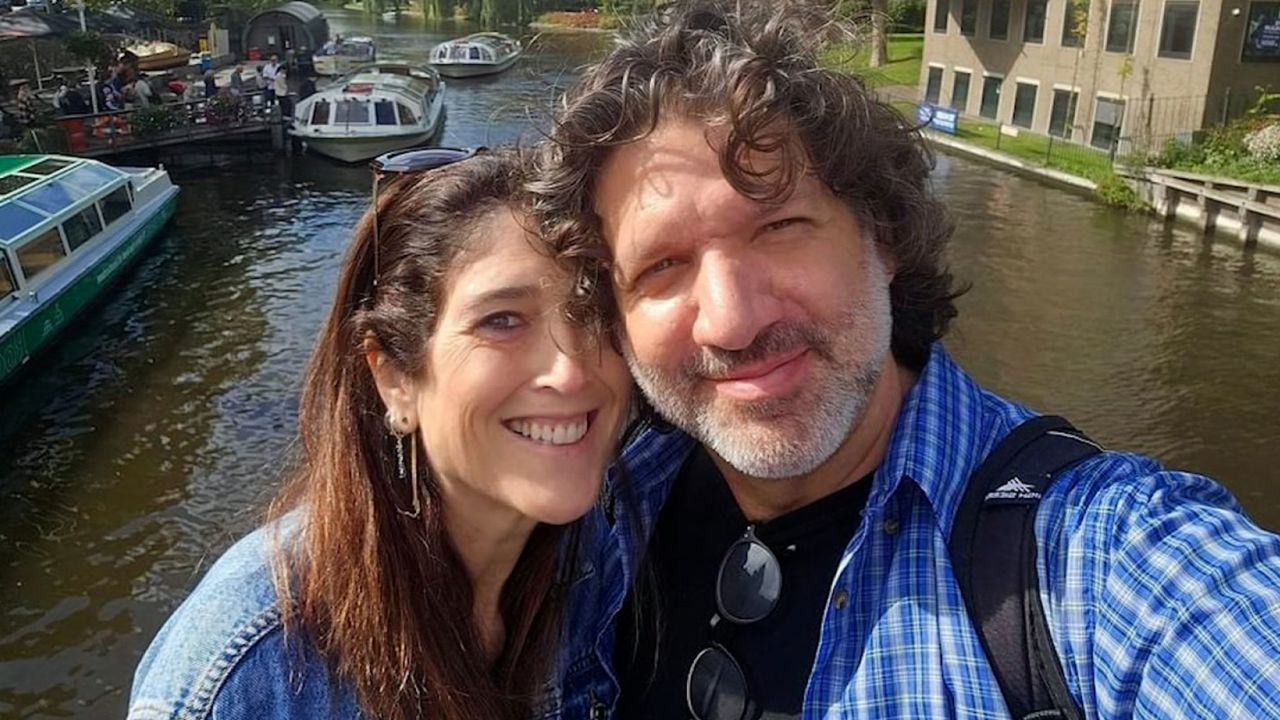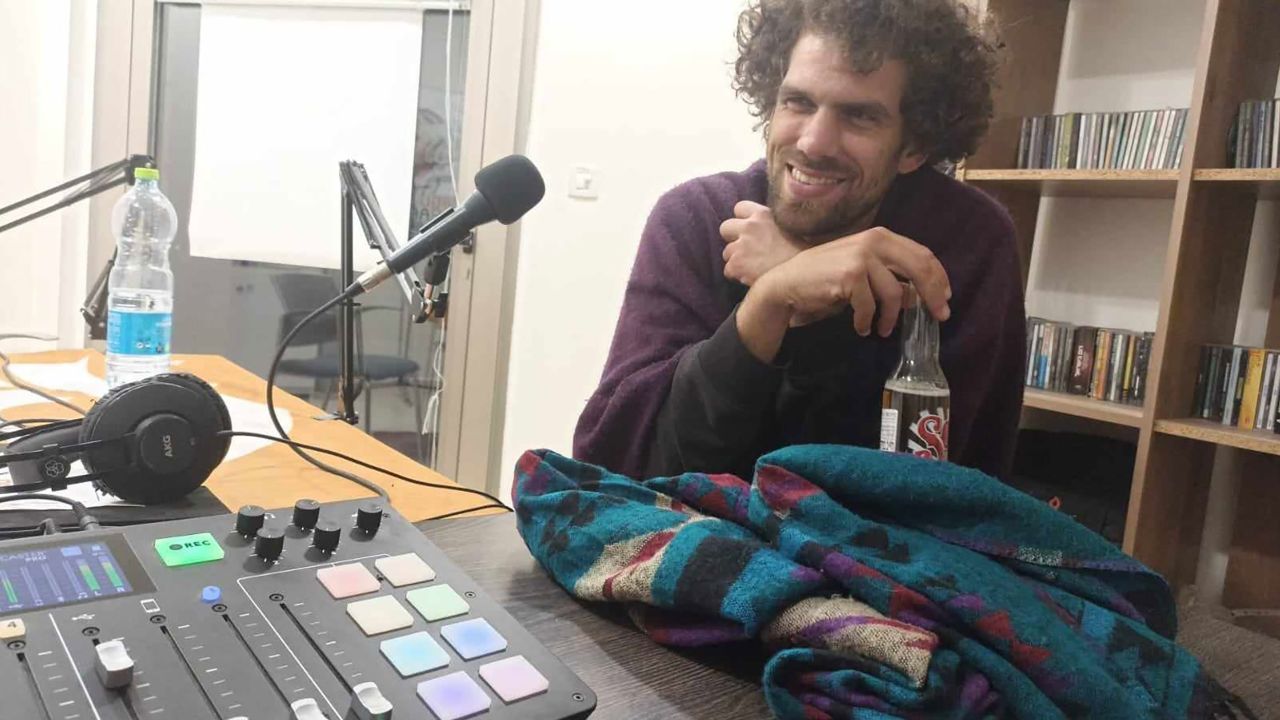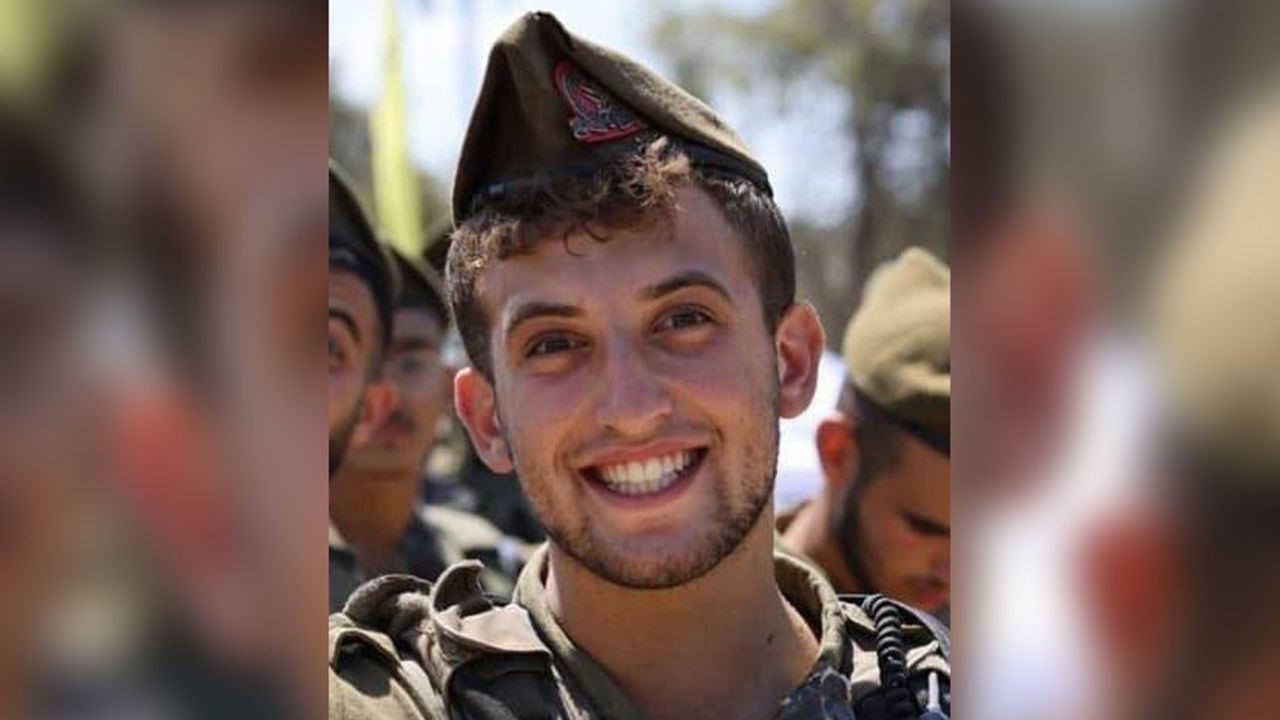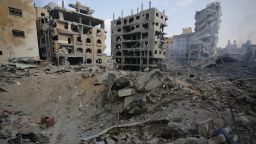Deborah Matias, an American citizen who lived in Israel, was shot and killed by Hamas gunmen while shielding her teenage son from their bullets, her father told CNN.
Hayim Katsman, an Israeli-American academic, was hiding in a closet with his neighbor when he was fatally shot, his sibling said.
They are among at least 14 US citizens who were killed in Israel after the Gaza-based militant group launched a devastating attack early Saturday that left at least 1,000 there dead.
There are also “20 or more Americans” in Israel who are currently unaccounted for, National Security Advisor Jake Sullivan said Tuesday.
Americans are also among the hostages being held by Hamas, US President Joe Biden said.
“I’ve directed my team to share intelligence and deploy additional experts from across the United States government to consult with and advise Israeli counterparts on hostage recovery efforts, because as President, I have no higher priority than the safety of Americans being a hostage around the world,” Biden said Tuesday.
In response to the attack, Israel has pounded Gaza with airstrikes, displacing more than 100,000 people. At least 900 Palestinians have been killed since the airstrikes began, including 260 children and 230 women, according to the Palestinian Ministry of Health, and medical care has been hampered by Israel cutting power to the territory. It’s unclear whether any US citizens are among those killed or injured in Gaza.
As families in the US wait for information about their missing loved ones, others are confronted with the sudden loss of siblings, children or parents.
A teen laid under his mother’s body
Ilan Troen said he was on the phone with his daughter when she was killed.
Troen, a professor emeritus from Brandeis University in Massachusetts, said his daughter and son-in-law, Deborah and Shlomi Matias, were killed by Hamas militants over the weekend. Troen’s grandson, 16-year-old Rotem Matias, was shot but will survive, Troen told CNN’s Poppy Harlow on Monday.

Troen said he was speaking to his daughter when militants infiltrated the safe room the family was in. After she was shot, her body gave cover to her son.
“We were on the phone with Deborah as she was killed,” Troen said. “We were on the phone the entire day with our grandson, Rotem, as he lay first under her body, and then found a place to escape under a blanket in a laundry.”
Rotem was shot in the stomach, Troen said, but will recover.
“The brunt of the shot was borne by his mother,” he said. “The terrorists who came, they had explosives and blew up the front door to their house and then blew out the front door to their so-called safe room.”
Rotem hid for more than 12 hours after he was shot, texting on his phone to communicate with people who were coaching him on how to breathe and how to manage “the blood that was coming out of his abdomen,” Troen said, adding Rotem’s phone was down to a 4% charge when he was rescued.
Deborah Matias attended the Rimon School of Music in the Tel Aviv area, where she met her husband, Troen told CNN. “Deborah was a child of light and life,” Troen said. “She, rather than becoming a scientist or a physician, she said to me one day, ‘Dad, I have to do music, because it’s in my soul.’”
An academic who was ‘pro-peace’

Hayim Katsman was “very pro-peace” and had supported “a solution for this bleeding conflict” between Israel and Palestinians before he was killed, his sibling told CNN.
Noy Katsman – who is non-binary and uses they/them pronouns – said they last heard from their brother Saturday morning when he wrote to say there were terrorists in Kibbutz Holit, which is in southwest Israel near Gaza.
When they tried to reach their brother again about four hours later, there was no response.
Hayim Katsman’s friend, Avital Alajem, described how she was hiding inside a shelter’s closet with Katsman when gunmen came and began firing at the door – striking Katsman multiple times.
“He was murdered,” Alajem told CNN’s Anderson Cooper in Israel early Tuesday. “I was saved because he was next to the door, and they shot him.”
Katsman, who was a US citizen, was remembered by his sibling as a “brilliant academist,” a musician who DJ’d and played bass, and a volunteer at the community garden in the city of Rahat.
He earned his PhD in international studies from the University of Washington’s Henry M. Jackson School of International Studies in 2021 and was described as “an emerging scholar in the field of Israel Studies,” in a statement issued by the Association for Israel Studies.
Noy Katsman told CNN they hoped their brother’s death will not be used “as an excuse to kill other innocent people,” adding: “He wouldn’t have wanted that.”
A 21-year-old Israeli-American soldier
Israeli-American Roey Weiser was killed during Saturday’s attack, his mother, Naomi Feifer-Weiser, told CNN.
Weiser, 21, was a sergeant who served in the 13th Battalion of the Golani Brigade and was stationed at the Kerem Shalom border crossing, his mother said.
“He died how he lived, by putting others first, and when his base was overrun by terrorists, he went on his own to divert their attention allowing others to escape. Because of his bravery, at least 12 other soldiers are alive today,” Weiser’s mother said.
She said the family was finally able to retrieve her son’s body on Tuesday. They plan to hold his funeral on Wednesday.
“Roey lived his life to the fullest, almost always with a smile on his face,” the mother said. “He was always looking for ways to help those around him, and before he was conscripted he was a volunteer firefighter who was always the first to jump into action when needed.”

Though Weiser’s parents were born and raised in the US, they now live in Israel.
Correction: An earlier version of this story misspelled Daniel Ben Senior’s first name.
CNN’s Audrey Ash, Artemis Moshtaghian, Jennifer Korn, and Arlette Saenz contributed to this report.







